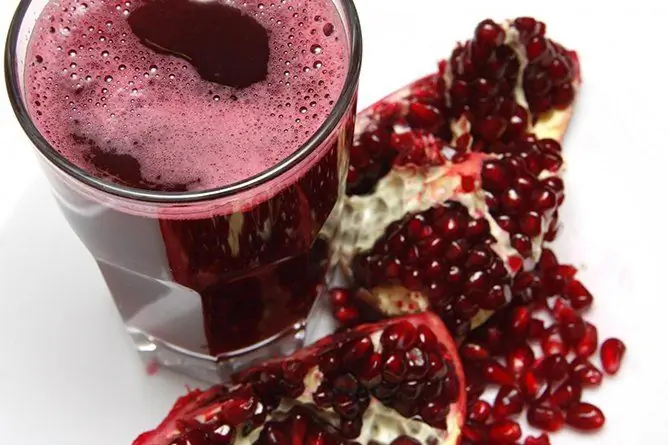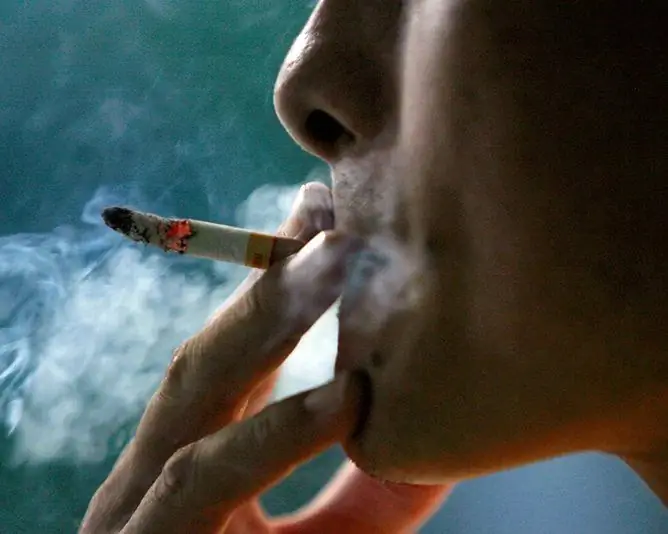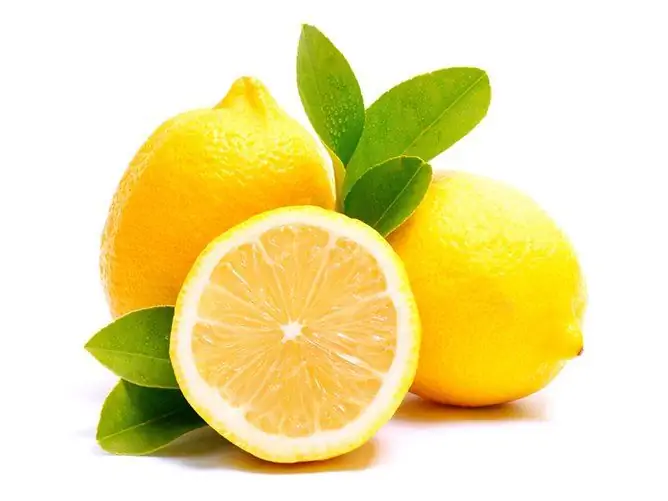- Author Rachel Wainwright wainwright@abchealthonline.com.
- Public 2023-12-15 07:39.
- Last modified 2025-11-02 20:14.
Does vodka raise or lower pressure?
The content of the article:
- The mechanism of action of alcohol on the cardiovascular system
- Alcohol tinctures for hypertension: benefits and harms
- Video
The question of whether vodka increases pressure or lowers, doctors are asked very often. In this article, we will analyze in detail how alcohol affects the human body, namely, the state of the heart and blood vessels. This will provide an informed answer to the question of whether it is possible to drink alcoholic drinks for people suffering from high blood pressure.

Vodka first increases and then lowers blood pressure, but it causes a number of side effects
According to medical statistics, cardiovascular diseases are the leading cause of death in most countries of the world. At the same time, starting from the 70s of the XX century, in the countries of Western Europe, the morbidity and mortality rate from them is gradually decreasing in connection with the expanded sanitary and educational work on the need for a healthy lifestyle. At the same time, in the countries of Eastern Europe and the CIS, this indicator, on the contrary, increased, which, according to doctors, is associated with an unhealthy lifestyle that the population of these countries leads:
- lack of physical activity;
- poor nutrition (abuse of fats, refined foods, light carbohydrates);
- smoking;
- alcohol abuse.
The mechanism of action of alcohol on the cardiovascular system
After drinking any alcoholic drink, the ethyl alcohol contained in it is rapidly absorbed from the gastrointestinal tract, enters the vessels and is carried throughout the body with the blood stream. Once in the brain, even small doses of alcohol begin to suppress inhibition processes in the cortex, which leads to the development of the first stage of intoxication - arousal. It is characterized by:
- emotional arousal;
- disorders of memory and thinking;
- decrease in criticism of one's own behavior, actions.
During this period, a person's breathing (tachypnea) and heart rate (tachycardia) become more frequent, and the level of blood pressure rises. Thus, at the beginning of the intoxication, vodka increases the pressure.
Further alcohol intake becomes the reason that excitement is replaced by inhibition of the activity of the cerebral cortex. This is manifested by the following symptoms:
- violations of coordination of movements;
- fuzzy, blurry speech;
- confusion (in severe cases up to coma).
The oppression by alcohol of the vasomotor and respiratory centers located in the medulla oblongata leads to a drop in pressure, a decrease in the frequency of respiratory movements. Thus, a significant amount of alcoholic beverages, including vodka, lower the pressure.
When alcohol is metabolized in the body, a number of toxic substances are formed, primarily acetaldehyde. They cause poisoning of the body and cause the development of hangover syndrome, characterized by the following symptoms:
- swelling and redness of the face;
- muscle tremors;
- nausea, vomiting;
- headache;
- increased breathing, pulse, blood pressure;
- irritability.
Often during a hangover, the pressure rises to very high numbers, vasospasm occurs, a hypertensive crisis develops, which, in turn, can be complicated by myocardial infarction or cerebral stroke.
That is why any strong alcoholic drinks such as cognac, whiskey, vodka under high pressure should be completely prohibited.
Alcohol tinctures for hypertension: benefits and harms
Currently, in the arsenal of doctors there are many modern, effective and, with the correct use of safe drugs, which make it possible to reliably control the level of blood pressure, to prevent its sharp jumps. Nevertheless, the treatment of hypertension is very popular not with pharmaceuticals, but with phytopreparations.
In fact, herbal medicine can be quite effective when the initial manifestations of hypertension are detected in patients. At the II-III stage of the disease, it can be included in the complex therapy, of course, only as prescribed by the attending physician.
Depending on the characteristics of the preparation, phytopreparations are divided into the following types:
- infusion - medicinal raw materials are poured with boiling water and infused for a certain time (from 10 minutes to several hours);
- broth - medicinal herbs are poured with boiling water and boiled over low heat for 15 to 60 minutes (depending on the recipe);
- tincture - is an alcoholic extract from medicinal raw materials, prepared by insisting on alcohol or vodka for 7-30 days;
- syrup - plant extract in which sugar is used as a solvent.
At home, infusion, decoction and tincture are most often prepared. Preparation of infusions and decoctions requires a lot of time, and their shelf life does not exceed 12-24 hours. That is why many people prefer alcoholic tinctures, for example, pine cones on vodka from pressure.
But if vodka raises blood pressure and its use for people with hypertension is contraindicated, are alcoholic tinctures safe for them?
Ethyl alcohol is one of the most effective solvents. That is why the concentration of biologically active substances in the tincture is much higher than in the broth or water infusion. In addition, ethyl alcohol has a pronounced antiseptic effect, which makes it possible for a long shelf life of alcoholic tinctures of medicinal plants (provided they are stored in a dark and cool place). This is where the benefits of alcoholic tinctures from high blood pressure end. And the disadvantages begin.
It should be understood that alcohol, even in an amount measured in milliliters, can harm the body, especially if you take it daily and exceed a safe dose (30 ml of ethanol for men and 20 ml for women), which is only 2-3 tablespoons of tincture … This, perhaps, is the main danger of alcoholic tinctures. A person perceives them as a natural medicine that does not carry any harm. However, taking them daily, he teaches the body to alcohol, which contributes to the development of domestic drunkenness. This path of the formation of alcoholism is longer and less noticeable than when drinking beer, wine or vodka, but no less dangerous.

Popular pine cones on vodka, and other tinctures can be harmful to health, so it is better not to use them
The concentration of active substances in alcoholic tinctures is high. Moreover, many herbs contain components that act on different organs. As a result, the tincture can lower blood pressure, but at the same time harm the gallbladder, stomach or other organ. In addition, a high concentration of active ingredients increases the likelihood of developing allergic reactions.
Thus, regardless of whether vodka raises blood pressure or lowers it, it is a rather toxic product for the human body and should not be used either it or any alcohol-containing products in case of hypertension.
Video
We offer for viewing a video on the topic of the article.

Elena Minkina Doctor anesthesiologist-resuscitator About the author
Education: graduated from the Tashkent State Medical Institute, specializing in general medicine in 1991. Repeatedly passed refresher courses.
Work experience: anesthesiologist-resuscitator of the city maternity complex, resuscitator of the hemodialysis department.
Found a mistake in the text? Select it and press Ctrl + Enter.






